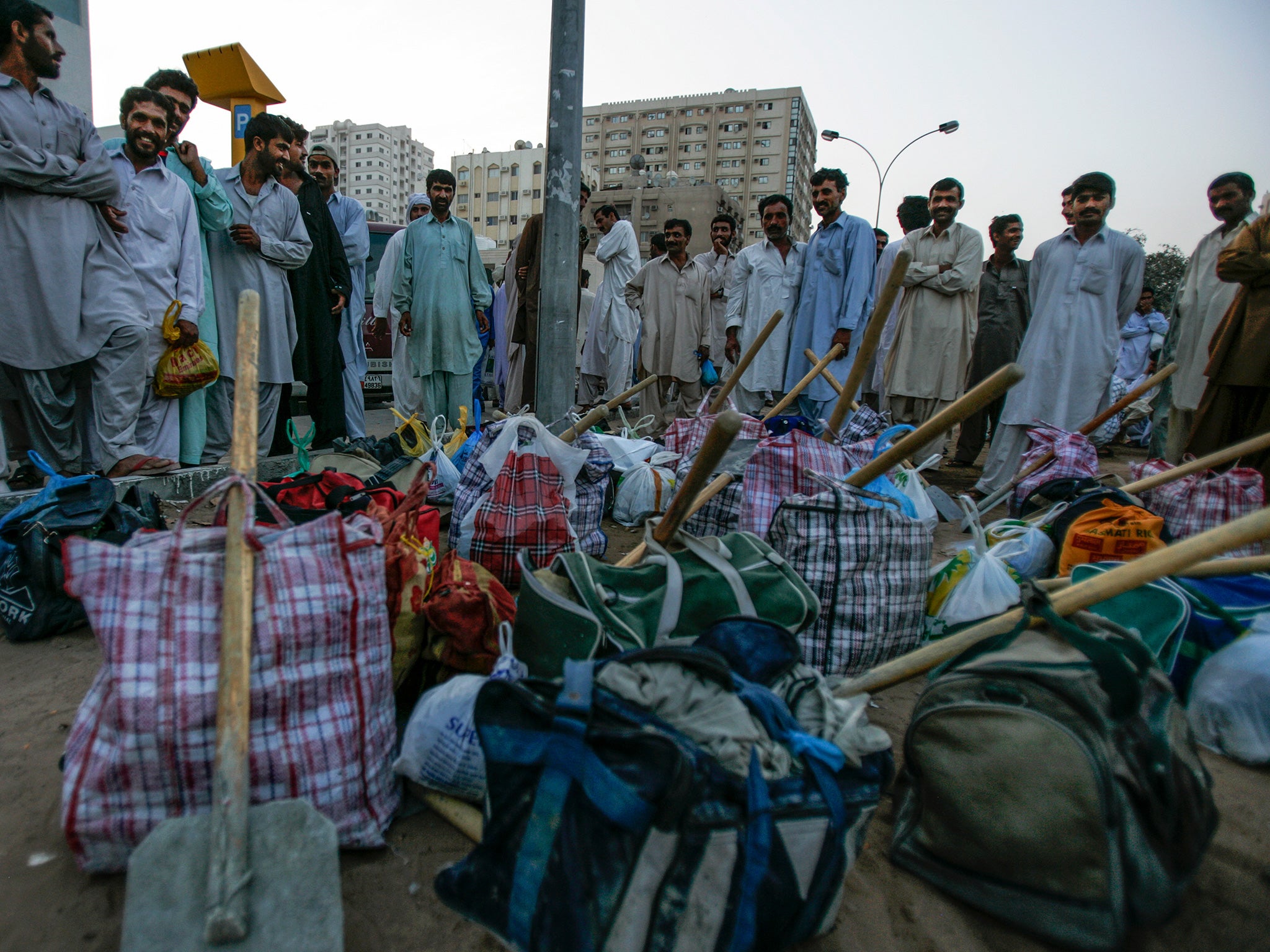United Arab Emirates law to protect migrant workers fails to cover domestics
New legislation aims to protect workers from widespread practice of paying foreigners less than they are promised

Human-rights groups have issued a guarded welcome to a new law passed in the United Arab Emirates that is designed to protect migrant workers, but say it is a half measure because it does not cover the hundreds of thousands of foreign domestic employees in the country.
The new law, which comes into force at the start of next year, aims to protect workers from low wages, and in particular the widespread practice of paying migrants less than they are promised when they sign up for jobs in Gulf states.
“A major complaint of migrant workers in the UAE is usually that they’re not being paid what they were promised, so UAE authorities deserve credit if this law ends contract substitution,” said Joe Stork, deputy Middle East director at Human Rights Watch. “Its success will depend on whether workers will have access to complaint mechanisms when employers don’t abide by the new regulations.”
A number of Gulf countries, including the UAE, have faced fierce criticism in recent years for the way workers – usually construction contractors – are treated. Typically from places such as Pakistan and Bangladesh, many migrant workers say they are forced to work excessively long hours for little money and given accommodation that falls well below reasonable standards.
In some instances, migrant workers reported having their passports confiscated by their employers on their arrival in the Gulf.
Last year, the International Trade Union Confederation called on the United Nations to investigate evidence of the abuse of migrant workers in the UAE, including construction workers at the site of new branches of the Louvre and the Guggenheim.
Under the new law, state approval for hiring a new migrant worker will only be given once an offer of employment – specifying the pay and the duration of the contract – is signed by a potential recruit in their own country.
Human Rights Watch says the new law will only be effective if an appropriate grievance mechanism accompanies the legislation, and if those who fail to offer the agreed contracts are penalised.
The group also points out that the new law does not apply to domestic workers, the vast majority of whom are brought from Africa and Asia to live in the homes of their employers. There are around 300,000 domestic workers in the UAE, nearly half of them women.
Domestic workers “continue to remain at the bottom of the barrel, subject to far more egregious abuse in these home circumstances,” said Rothna Begum, Middle East women’s rights researcher at Human Rights Watch.
In a report last year, Human Rights Watch said migrant domestic workers often ended up trapped in abusive workplaces because of the so-called “kafala” visa sponsorship system, which means they cannot leave their jobs without their employers’ consent.
It documented cases of physical and sexual abuse, including women being denied food or medical treatment. And an investigation earlier this month by BBC Arabic suggested that hundreds of migrant women in the UAE have been imprisoned after being raped or having consensual sex.
“These women are living 24 hours, seven days a week in their employers’ homes,” said Ms Begum. As a result they face abuse that is “far more extreme and intimate”.
Subscribe to Independent Premium to bookmark this article
Want to bookmark your favourite articles and stories to read or reference later? Start your Independent Premium subscription today.
